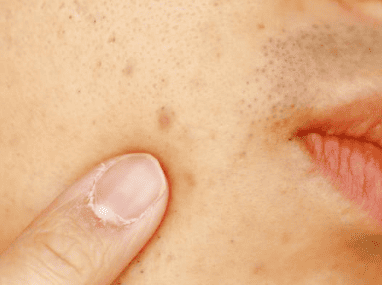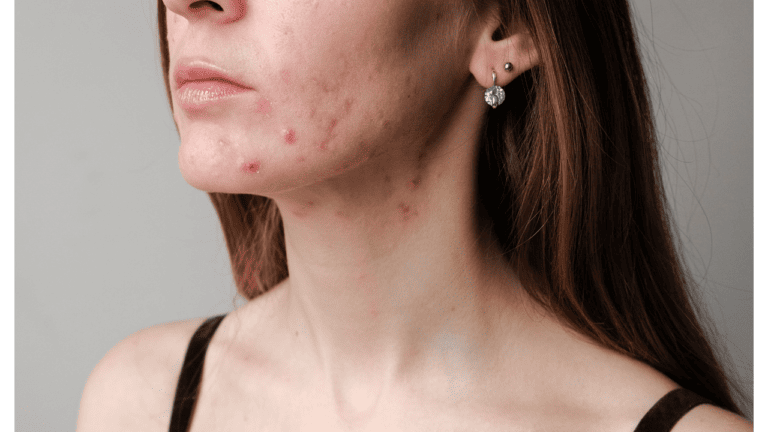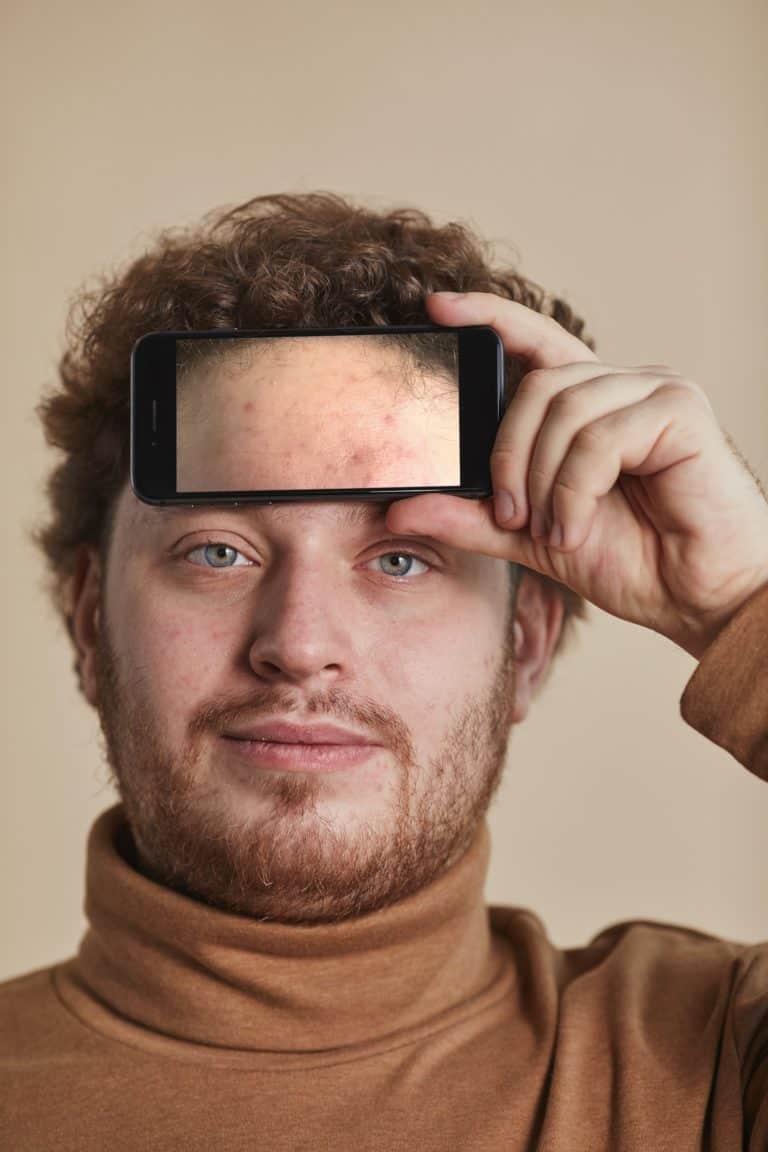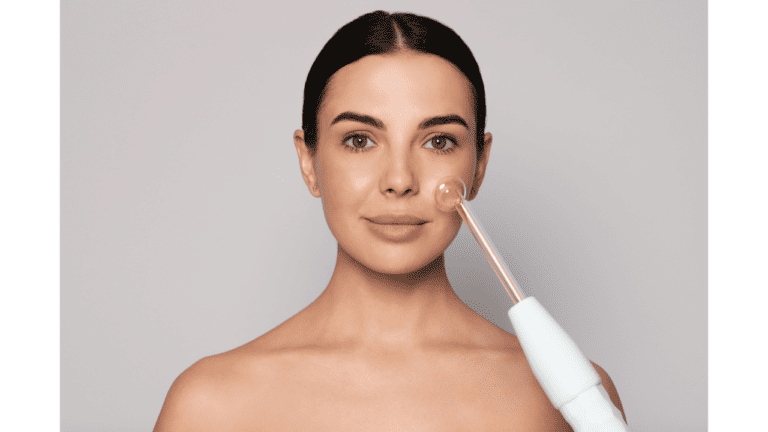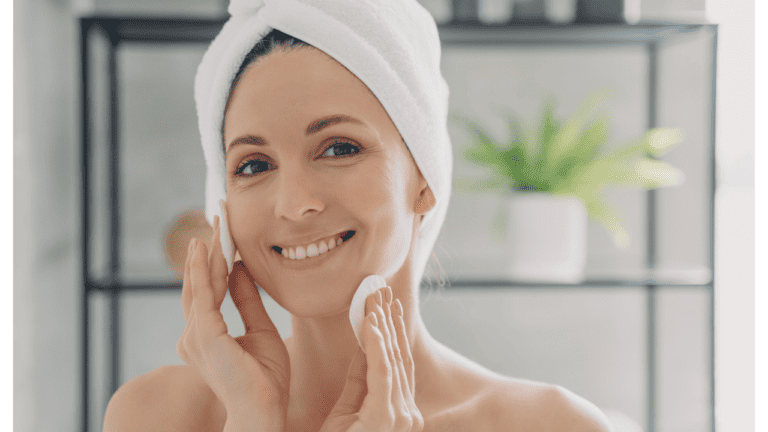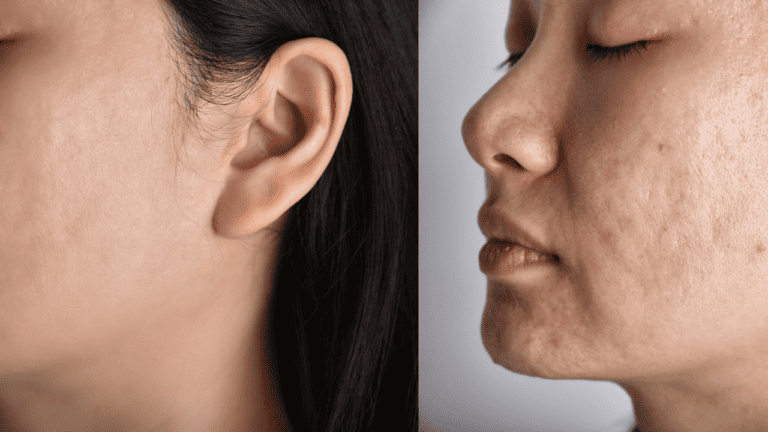Dark spots left behind by pimples can be a frustrating reminder of previous acne struggles. These spots are a common side effect of acne and often take longer to fade away than the original pimple.
There are several ways to expedite the fading process and regain your once-clear, even-toned skin. By understanding the causes of dark spots and implementing appropriate prevention and treatment strategies, you can effectively reduce their appearance.
To address this issue, it’s important to recognize the difference between dark spots and acne scars, as they require different approaches. Dark spots are usually caused by an overproduction of melanin during the healing process, whereas acne scars occur due to damage or irregular collagen production. By considering various factors such as sun exposure, daily skincare routine, skin conditions, and available professional treatments, you can find the most effective solution for reducing dark spots left by pimples.
Key Takeaways
- Identify the difference between dark spots and acne scars to target appropriate treatments
- Protect your skin from sun damage and maintain a consistent daily skincare routine
- Explore natural remedies, home care, and professional treatment options for fading dark spots
Understanding Dark Spots and Acne Scars
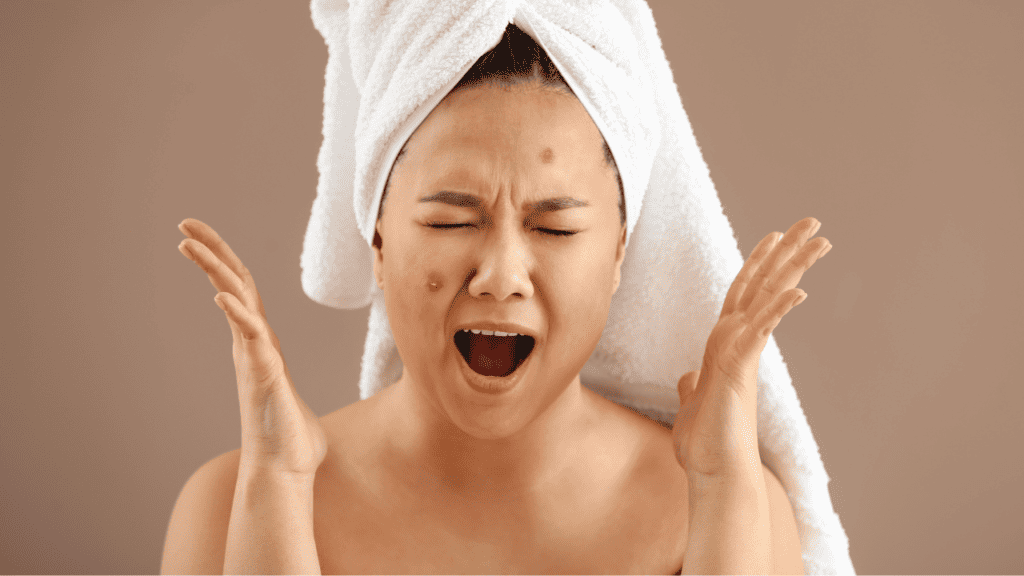
When dealing with acne, it’s common to see dark spots and acne scars left behind on your skin. Dark spots, also known as hyperpigmentation or post-inflammatory hyperpigmentation, occur when the pigment is produced in response to inflammation caused by acne. These dark marks often appear on the surface of your skin, making them more noticeable on those with darker skin tones.
Acne scars, on the other hand, can be either raised scars or indentations on your skin. Raised scars form as a result of excess tissue buildup during the healing process, while indentations are the result of tissue loss. Both types can cause blemishes that might affect your self-esteem.
To manage and fade these residual issues, it’s crucial to understand the different causes and treatments. For hyperpigmentation, using products that contain active ingredients like retinoids, alpha-hydroxy acids, or niacinamide may help accelerate cell turnover and ultimately fade these dark spots. Also, be sure to wear sunscreen daily to protect your skin from UV damage, as exposure to the sun can further aggravate dark marks and blemishes.
When it comes to dealing with acne scars, over-the-counter treatments may not be as effective for raised scars or indentations. In these cases, consulting a dermatologist for in-office treatments such as laser therapy or chemical peels might be your best option. Remember that it’s essential to be patient, as results may take weeks or even months to become noticeable.
By taking action to protect your skin and following the appropriate treatments, you’ll be well on your way to achieving a clearer, healthier complexion. Just remember to be consistent and gentle with your skincare routine, and soon, the dark spots and acne scars will become a thing of the past.
Causes of Dark Spots
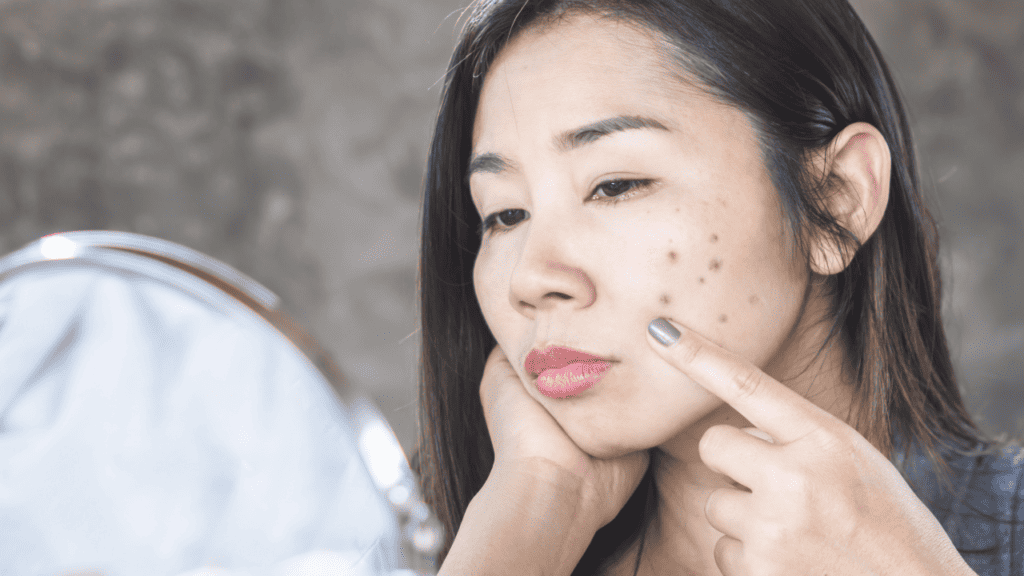
Some of the most common causes of dark spots are sun exposure, inflammation, irritation, and acne. If you’ve noticed that your pimples have left behind pesky dark spots, read on to learn about the factors contributing to this skin problem.
One of the primary causes of dark spots is sun exposure. When your skin is exposed to the sun, it’s more susceptible to dark spots and damage. The ultraviolet (UV) rays from the sun can trigger an excess production of melanin, which is responsible for your skin’s color. In some cases, melanin may accumulate around areas of previous inflammation, such as acne, causing dark spots to form.
Speaking of acne, it’s another major factor that can contribute to the formation of dark spots. Acne is an inflammation, and those black spots are basically melanin-producing cells panicking and rushing to the “crime site”. They overproduce melanin to protect fragile inflammatory skin from external damage, mainly UV exposure. These dark spots are called post-inflammatory hyperpigmentation (PIH).
Inflammation and irritation can also lead to dark spots, especially if you’re prone to picking at your skin or using harsh skincare products. When your skin is irritated and inflamed, it sends a signal to melanin-producing cells to produce more melanin, which can result in dark spots.
It’s important to be gentle with your skin and avoid over-exfoliating or using harsh chemicals that can exacerbate the problem. Remember to always apply sunscreen, even on cloudy days, to help reduce your risk of sun damage and dark spots. Additionally, look for skincare products that contain ingredients known to help fade dark spots, such as vitamin C and niacinamide.
In summary, pay attention to sun protection, avoid skin irritants, and be gentle with your skin to prevent these unwelcome dark spots left behind by pimples.
Effect of Sun on Acne and Dark Spots
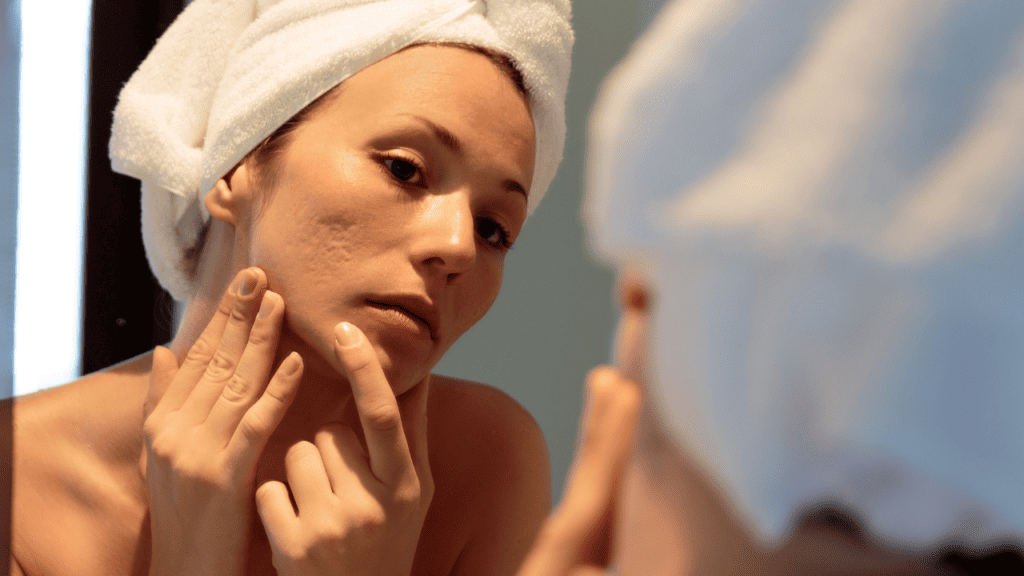
The sun plays a significant role in the appearance and worsening of acne and dark spots. UV exposure from the sun can lead to an increase in melanin production, making it challenging for your post-inflammatory hyperpigmentation (PIH) to fade away. To effectively deal with acne and dark spots, you need to consider the right sun protection methods.
Wearing sunscreen is one way to protect your skin from the sun’s harmful rays. Contrary to popular belief, sunscreen does not worsen acne. It all depends on the base formula of the sunscreen you choose. You should look for a sunscreen that is non-comedogenic and compatible with your skin type. A broad-spectrum sunscreen with an SPF of 30 or higher is recommended to shield your skin from both UVA and UVB rays.
Remember to apply your sunscreen generously and evenly on all exposed areas of your skin, including your face, neck, and ears. You should reapply it every two hours, especially during prolonged sun exposure or after swimming or sweating.
Sun protective clothing, such as wide-brimmed hats, sunglasses, and long-sleeved shirts, can also help shield your skin from the sun and prevent further darkening of acne scars and age spots. When planning outdoor activities, try to avoid the peak sun intensity hours, typically between 10 a.m. and 4 p.m.
To help fade dark spots caused by pimples, you can incorporate skincare products containing ingredients known for their brightening properties, such as vitamin C, niacinamide, or glycolic acid. These ingredients can work effectively alongside sun protection strategies to promote an even skin tone, minimize the appearance of dark marks, and enhance your skin’s natural healing process.
By understanding the effects of the sun on acne and dark spots and adopting appropriate sun protection measures, you can support your skin’s recovery from pimples and post-inflammatory hyperpigmentation while maintaining its overall health.
Prevention and Daily Care
Taking care of your skin is essential in fading dark spots left by pimples. Here are a few tips for prevention and daily care to help you achieve an even and healthy skin tone.
First and foremost, incorporate sun protection into your daily routine. Exposure to the sun’s harmful rays can worsen dark spots on your skin. Ensure you use a noncomedogenic sunscreen with an SPF of 30 or higher to protect your skin without clogging your pores. Additionally, consider wearing protective clothing and seeking shade when the sun is the strongest.
A consistent skincare routine is vital in preventing and fading dark spots. This includes regular cleansing, moisturizing, and treating your skin with products specifically targeted at reducing hyperpigmentation. Look for ingredients such as niacinamide, tretinoin, retinol, and vitamin C in your skincare products. These ingredients have been proven to help fade dark spots and improve overall skin tone.
Exfoliation plays a crucial role in fading dark spots as it helps remove the hyperpigmented layers of the skin and promotes cell turnover. However, it’s essential to exfoliate gently to avoid irritating your skin. Opt for chemical exfoliation, which typically includes acids like lactic acid or glycolic acid. Chemical exfoliants are more controlled and beneficial for your skin compared to physical scrubs.
Don’t forget about hair care as a part of your daily routine. Hair products can sometimes cause breakouts along the hairline, which can contribute to dark spots. Use gentle, non-comedogenic hair care products and keep your hair clean to minimize the risk of breakouts and subsequent dark spots.
In conclusion, by following a consistent skincare routine, using non-comedogenic products, incorporating sun protection, and being mindful of hair care, you can prevent and fade dark spots left behind by pimples. Give your skin the care it deserves and let your natural glow shine through.
Natural Remedies and Home Care
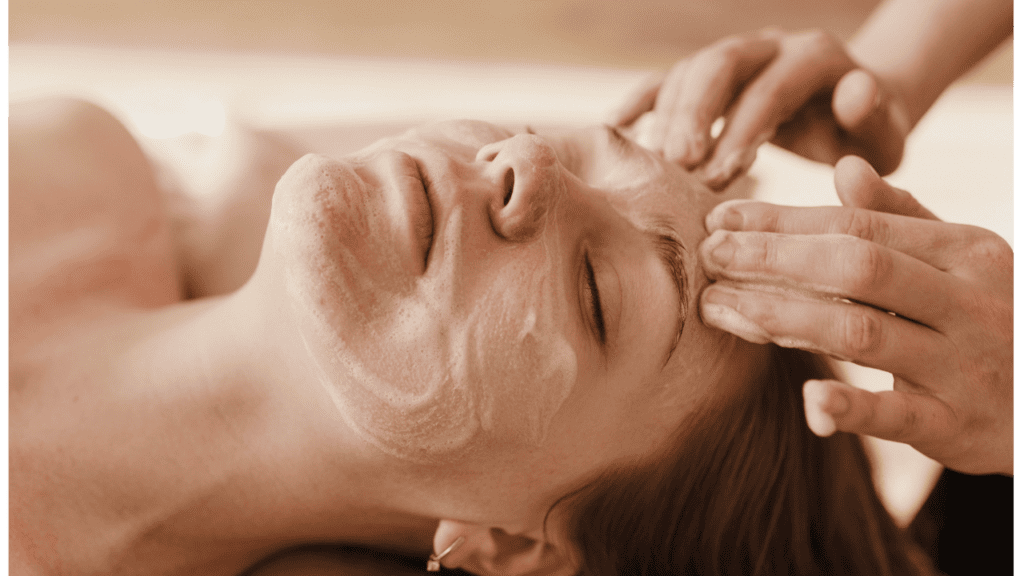
To fade dark spots from pimples on your skin, it is essential to adopt a consistent skincare routine. In this journey, you can incorporate natural remedies and home care practices to help maintain an even skin tone.
One accessible home remedy for reducing dark spots is exfoliation. Carefully exfoliate your skin in a gentle manner to remove dead skin cells. Regular exfoliation helps reveal a brighter complexion and can assist in lightening post-acne marks.
Incorporating glycolic acid into your skincare routine can be beneficial too. Glycolic acid is an effective exfoliant that helps reduce discoloration and promote healthy skin turnover. By choosing non-comedogenic skincare products containing glycolic acid, you can improve your skin’s overall appearance without clogging pores or causing further breakouts.
Healthy skin starts from within. Your diet and lifestyle play a crucial role in your complexion. A balanced diet filled with essential nutrients and vitamins can give your skin a natural boost. Drinking plenty of water and getting enough sleep can also contribute to an improved skin condition.
Utilizing natural remedies can help lighten dark spots from pimples. For example, lemon juice is often used as a skin-lightening product. However, be cautious when using lemon juice, as it can be harsh on your skin if not diluted properly. Other beneficial natural components for skin lightening include aloe vera, which can calm inflammation and promote healing, and turmeric, which has anti-inflammatory and antioxidant properties.
Remember that skincare is a gradual process, and it takes time to reduce dark spots and regain your regular skin tone. Consistency is key in adopting an effective skincare routine. By following these natural remedies and home care practices, you can enjoy gradual improvements in your skin’s appearance.
Effect of Skin Conditions on Dark Spots
Eczema, dryness, and redness are common skin conditions that can influence the appearance and persistence of dark spots left behind by pimples. Let’s take a look at how these conditions can affect your skin and what you can do to help fade dark spots more effectively.
Eczema, also known as atopic dermatitis, is a chronic skin condition characterized by itchy, inflamed patches on your skin. When you scratch eczema-prone areas, this can lead to post-inflammatory hyperpigmentation and contribute to dark spots. So, it’s crucial to manage your eczema symptoms by keeping your skin moisturized and using doctor-recommended treatments if necessary.
Dryness can also affect the process of fading dark spots. When your skin is lacking moisture, it may not be able to shed dead skin cells effectively, causing a buildup that can make dark spots appear more prominent. Therefore, it’s essential to keep your skin hydrated by using a quality moisturizer and avoiding harsh, drying products.
Redness, caused by conditions like rosacea or general skin irritation, can also make dark spots stand out more. It’s important to identify and treat the underlying cause of redness to reduce its impact on the appearance of dark spots. If you’re dealing with redness, consider using gentle, fragrance-free skincare products and consult a dermatologist if necessary.
In general, to fade dark spots left behind by pimples, you should focus on a consistent skincare routine that addresses your specific skin type and concerns. This may include topical treatments like retinoids, alpha hydroxy acids (AHAs), or skin-lightening agents to help expedite the fading process. Remember to protect your skin from the sun, as exposure to UV rays can intensify dark spots. Be patient, as it can take time for these spots to fade, and always consult a dermatologist for personalized advice.
Professional Treatments and Procedures
If you’re looking for faster results to fade dark spots left behind by pimples, there are a variety of professional treatments and procedures you can explore. A dermatologist can recommend the most suitable treatment based on your skin type and the severity of the dark spots. Here are a few options to consider:
Chemical peels involve applying a solution to your skin, which causes it to exfoliate and gradually peel off. This can help lighten dark spots while improving the overall texture of your skin. There are different chemical peel options available, such as glycolic acid, salicylic acid, or TCA, depending on your individual needs.
Laser treatments target the pigmented areas of your skin using focused light energy. These treatments are precise, so they’re able to target the dark spots without affecting the surrounding skin. Depending on the level of damage, you may need multiple sessions to achieve optimal results. Laser resurfacing is a common procedure for treating acne scarring and post-inflammatory hyperpigmentation.
Microdermabrasion uses a handheld device that gently exfoliates the skin’s surface with tiny crystals. This can help remove the top layer of skin, allowing new, fresher skin to emerge. Microdermabrasion is a minimally invasive procedure that’s generally safe for all skin types but may be less effective for deeper, more severe dark spots.
Dermabrasion is a more intense version of microdermabrasion, utilizing a rotating instrument to remove the outer layers of skin. This technique aims to smooth and rejuvenate your skin but keep in mind that it requires a longer recovery time.
Microneedling involves using a device with tiny needles to create micro-injuries in the skin. This triggers your skin’s natural healing process, promoting collagen production, and eventually reducing the appearance of dark spots. While it may be more uncomfortable than some other treatments, micro needling can provide significant improvements in your skin’s tone and texture.
In conclusion, when it comes to fading dark spots left by pimples, discussing your concerns with a dermatologist is the first step toward finding the right treatment or procedure for your skin. With their help, you can choose from a variety of medical treatments to achieve clearer, brighter skin. Remember, it’s essential to follow their recommended aftercare guidelines to maintain your results and keep your skin healthy and glowing.
Conclusion
In order to fade the dark spots left behind by pimples, it’s essential to maintain a consistent skincare routine. Begin by incorporating a gentle cleanser and exfoliant into your daily routine. This will help to remove dead skin cells, allowing newer, healthier skin to come through. Remember to always be gentle with your skin, as harsh scrubbing can cause irritation and even lead to acne scarring.
Adding products with brightening ingredients like vitamin C can also be beneficial in fading dark spots. These products help to even out your skin tone and promote skin cell turnover. Moreover, using a retinoid cream can increase collagen production, which in turn can help to improve your skin’s overall texture.
It’s important to protect your skin from the sun, as UV rays can worsen the appearance of dark spots and acne scars. Incorporating a broad-spectrum sunscreen, specifically one with an SPF of 30 or higher, will shield your skin from further damage. Wearing protective clothing and seeking shade when the sun is at its peak can also help to prevent the dark spots from becoming more noticeable.
Additionally, consider consulting with a dermatologist if you feel the need for professional guidance in fading dark spots. They can recommend specialized treatments such as chemical peels, laser therapy, or microdermabrasion that may be more effective in addressing your particular skin concerns.
Remember, patience is key when trying to fade dark spots left behind by pimples. It can take time for the skin to heal and to see noticeable improvement. By consistently following a skincare routine tailored to your needs and protecting your skin from further damage, you’ll be on your way to achieving healthier, more even-toned skin.
